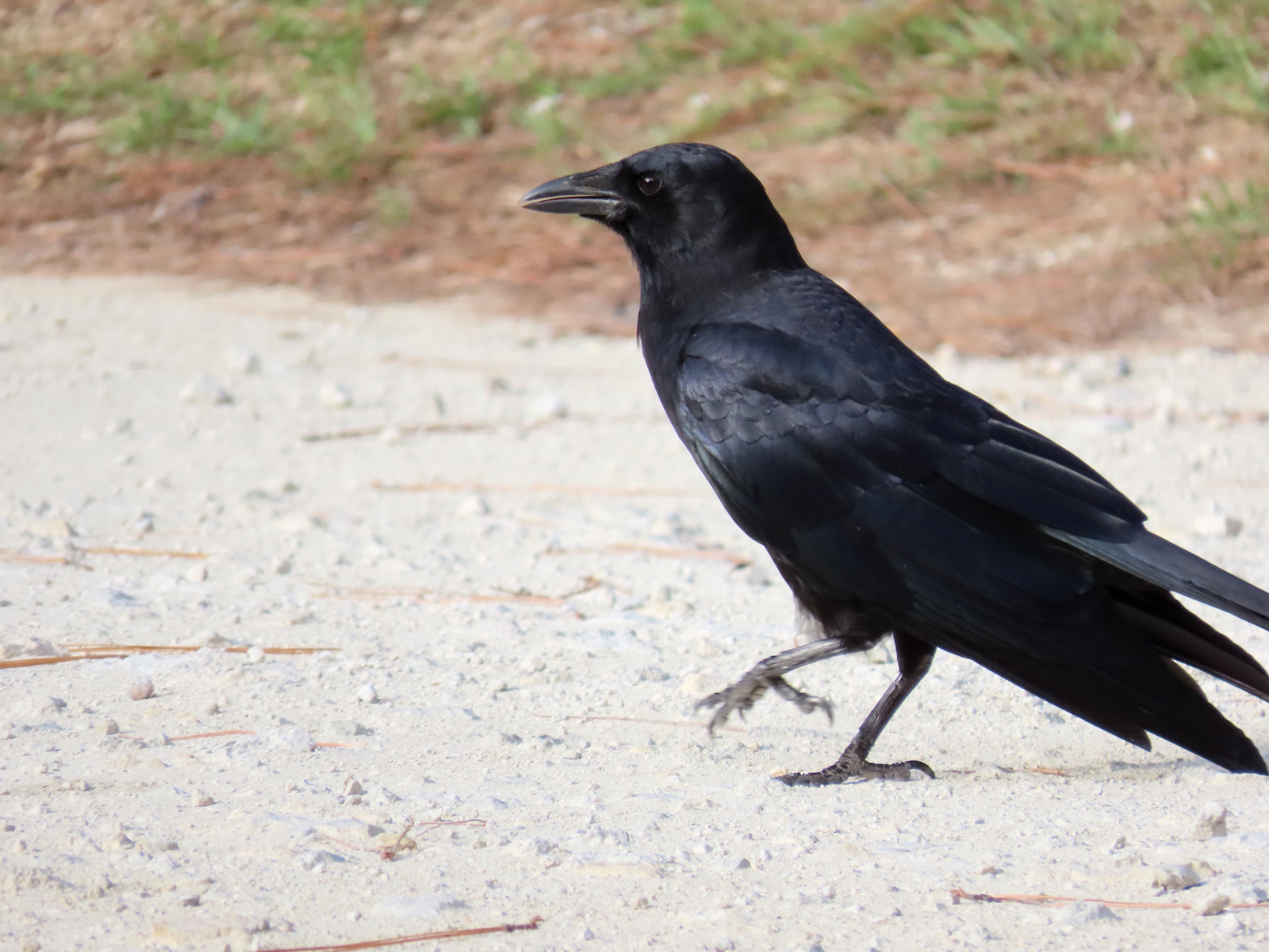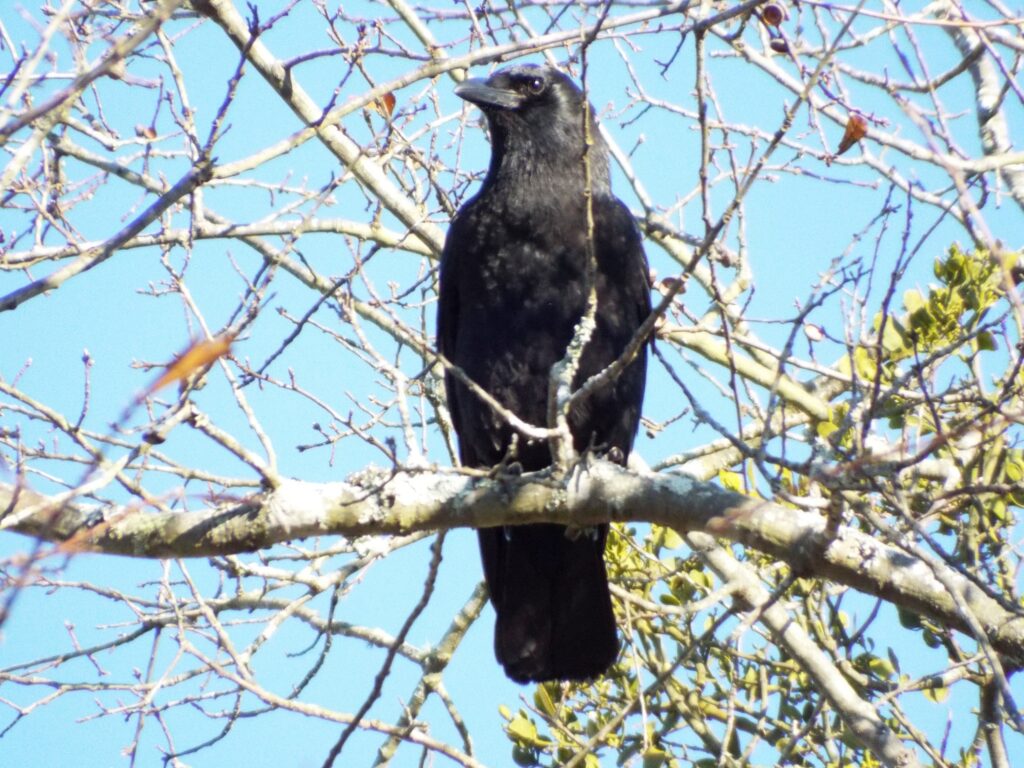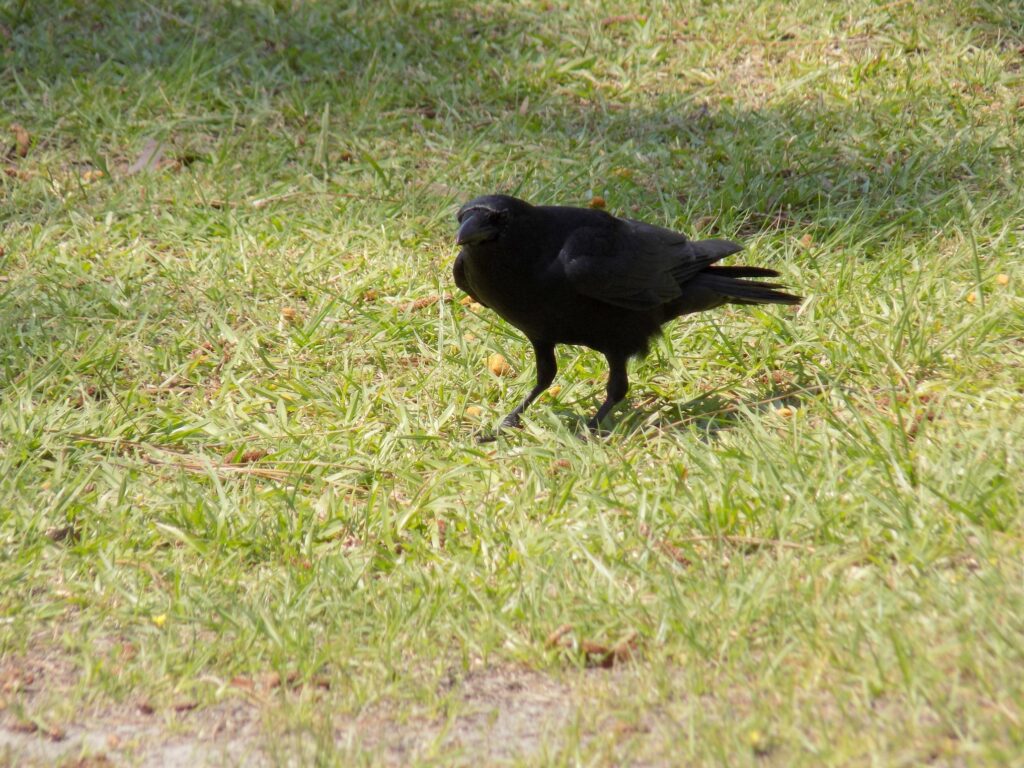



This week for Flora and Fauna Friday it’s a pair of big and boisterous black birds, our Crows of genus Corvus.
Here in the Lowcountry we have two species of Crow, the American Crow (C. brachyrynchos) and the Fish Crow (C. ossifragus). In the upper reaches of South Carolina the Common Raven (C. corax) is sometimes seen but never here in the Lowcountry. The American Crow and the Fish Crow are almost indistinguishable in appearance, both with plumage as black as coal across their entire body, a stout frame, and a sturdy, pointed bill. These two Crows constitute our largest species of Songbird in the Lowcountry and both are highly intelligent, generalists, move in groups, and have loud, distinct calls.
The American Crow is the bigger of the two, growing a touch larger than the Fish Crow. The American Crow is found throughout much of the lower forty-eight states and Canada, to include all of South Carolina. Their call is that stereotypical, repeated bark-like “Caw” we all know of Crows. However, they make a wide array of other, often strange, calls for communication with each other. American Crows are social and form tight knit family groups that move together throughout the landscape. They prefer open wooded habitats, like savannas and suburban neighborhoods, as a home base but will can be found almost anywhere and will venture into almost any habitat, to include cities, beaches, farm fields, swamps, and clear-cuts. They are extremely accomplished generalists who eat just about everything and, due to their very high intelligence, can capitalize food resources few other birds can access.
The Fish Crow is ever so slightly smaller than the American Crow and is found exclusively in the Southeast and Atlantic coastal plain of the United States. Their population numbers fluctuate throughout the year, being most abundant on Edisto Island in winter, but can be found year-round. Their calls are more simplistic but a little less consistent than the American Crow. Their calls are delivered with a distinct, nasally tone, most often as a “kah” or two-note “kah-ha”. The Fish Crow is a predominantly wetland species, being found extensively along beaches, tidal creeks, impoundments, freshwater marshes, and flooded duck fields. If you see a Crow walking on an oyster bed or foraging in a marsh, it’s almost always a Fish Crow. They’re also an expert generalist and will eat just about anything. A unique trait to Fish Crows is that they don’t form close knit family units like American Crows. In summer they pair off and raise their young, but in winter they coalesce into flocks of hundreds or thousands of birds. At dusk in winter, one can watch great rivers of Fish Crows flying west over the Island to roost overnight in the heart of the ACE Basin. They then wake in the morning, disperse, and feed across the landscape before returning again to their common roost. In early February their numbers swell in the ACE basin before the birds fly south en masse to greener spring pastures.